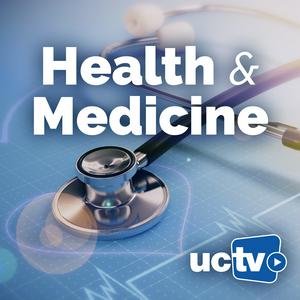Balancing caregiving and career, Elizabeth Jalazo, M.D. traces how her daughter Evelyn’s early feeding challenges and later diagnosis of Angelman syndrome reshape her priorities and professional path. Jalazo describes barriers many families face in rare-disease diagnosis, including a “wait and see” approach, specialist access, and insurance denials, and she emphasizes the value of answers for community, care planning, and research access. At UNC Chapel Hill, Jalazo works as a pediatric geneticist and clinical trialist studying interventional therapies for neurodevelopmental and lysosomal storage disorders, and she serves as chief medical officer of the Angelman Syndrome Foundation. She also leads work on Early Check, an opt-in newborn sequencing program in North Carolina, and shares practical lessons about protecting sleep, building support, and saying no while holding space for hope and joy Series: "Autism Tree Project Annual Neuroscience Conference" [Health and Medicine] [Show ID: 41173]


